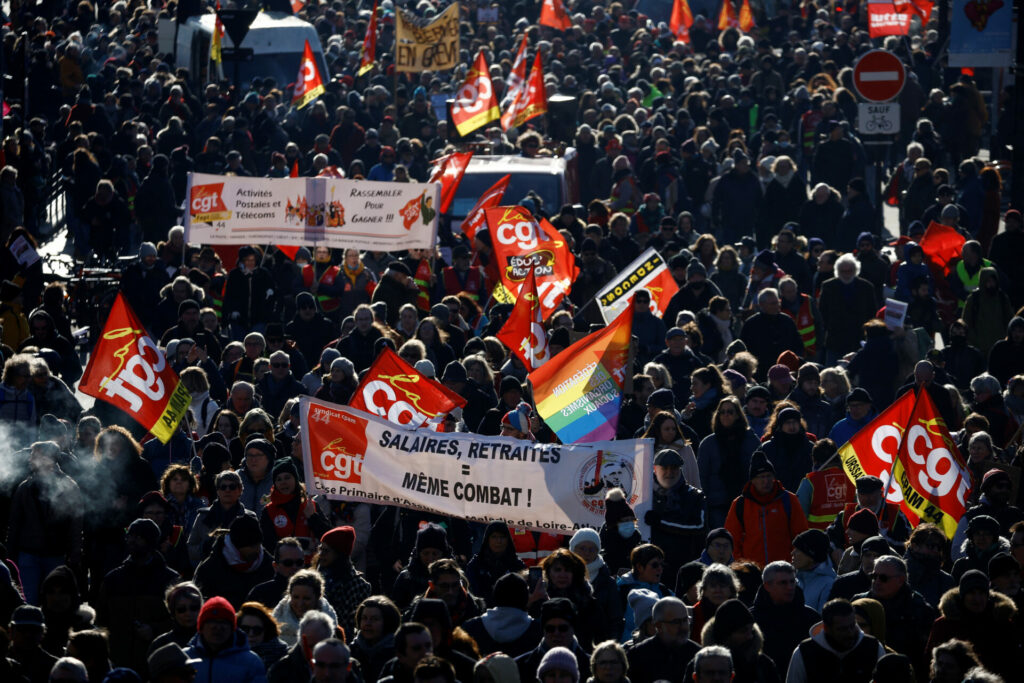France saw its third day of strikes on Tuesday as a quarter of French rail workers mobilised in protest over planned pension reforms, heavily disrupting the country's rail network.
As the French Government tries to raise the retirement age from 62 to 64 to avoid "bankrupting" the pension system, workers have once again headed to the streets on Thursday to voice their opposition.
The country's rail network SNCF has been the most affected by the strikes, with 25% of employees stopping working for the day. Yet this is less than previous days: the 31 January strike saw 36.5% of SNCF workers take industrial action; on 19 January, 46.3% took to the streets.
The participants were largely composed of SNCF train drivers (57%) and traffic agents (33%).
Related News
- Negotiations between Ryanair and cabin crew to restart
- 'Strikes not ruled out': Belgian unions will hold actions in early March
Nationwide strikes were triggered as French leaders pushed for what they insist are necessary reforms which will oblige people to work longer in order to address the nation's pension fund deficit.
Unions argue that the government is taking sweeping steps without heeding public concern.

